In the last two weeks, the wave of violence in the country, be it terrorism, kidnapping, or banditry, has become a disturbing phenomenon. While the reality validates this position, the rate of sensationalism and hyperbole involved in the reportage of these incidents is, however, worrisome. As Nigerians wake up daily, they are confronted with depressing headlines of violence. It seems to me that journalists, particularly editors, take joy in such news items and reportage.
In as much as I concede that in Nigeria, readers appear to be largely more interested in negative news than in positive developments, I do not agree that we must flow with the craze. I know that there are positive ways in which such events, even where true, can be calibrated so as not to continually give joy to the perpetrators while still achieving the same objective. It is to this extent that it has become increasingly vital to interrogate the role of the Nigerian press in shaping national understanding of terrorism, banditry, and the rising scourge of kidnapping.
For a profession whose foundational pillars are public enlightenment, agenda-setting, and the defence of the public interest, a disturbing posture has emerged in recent years, one that neither strengthens national security nor deepens public confidence.
Instead, it fosters confusion, amplifies fear, and sometimes unwittingly emboldens the very criminal networks threatening the soul of the nation. As is known, we have both the traditional media and the social media. While I concede that social media usage in Nigeria has become uncontrollable, notwithstanding the efforts of law enforcement agencies to curb its excesses, the same cannot be said of the conventional media, both print and electronic.
There are sufficient legislations guiding their activities, as well as a formidable number of regulators. In spite of these, multiple and endless breaches still exist. The question then arises: who will tame the media? But perhaps more importantly today, who will tame the perpetrators? The media, by its calling, is the watchdog of society. But when the watchdog becomes frightened, compromised, sensational, uncoordinated, or excessively politicised, even the wolves become emboldened. The Nigerian press today stands at this dangerous crossroads. The manner and pattern of reportage is gradually exhibiting misplaced priorities.
Most headlines are becoming hazardous. One of the recurring problems is the sensational framing of security incidents. A kidnapping scare in one village becomes “Nigeria Under Siege” in banner headlines; a single bandit attack becomes “Government Losing Control”; unverified body counts become gospel truth. Such alarmist reporting, while commercially attractive, creates a climate of heightened fear, undermines investor confidence, and corrodes public trust in state institutions.
In battling terrorism, the greatest weapon of the enemy is psychological warfare. When journalists unintentionally amplify terror by dramatizing atrocities, repeating the propaganda of criminal groups, or presenting unverified claims as fact, they become conduits for the very intimidation terrorists seek to achieve. The press must understand that every headline carries consequences. In a nation already struggling with fragility, words can inflame tensions or calm a troubled populace. It is my hope that the press generally appreciates the dangers of the unverified information often peddled. Thus, another troubling posture of the Nigerian press is the persistent circulation of unverified reports, especially in fast-moving security crises. In the rush to “break the news,” accuracy is often sacrificed.
How many times have we seen fabricated communiqués attributed to military formations? How regularly are casualty figures inflated without official confirmation? How often does the press rely on anonymous villagers, self-appointed “security experts,” or social media accounts to interpret complex insurgency operations? Terrorist groups thrive on misinformation.
A single false report can undermine ongoing covert operations, endanger victims of kidnapping, or sabotage negotiations intended to secure the release of abductees. In moments of national security emergency, misinformation is not merely irresponsible, it is life-threatening.
Perhaps the most dangerous posture is the politicisation of insecurity. Terrorism, banditry, and kidnapping are non-partisan national tragedies, yet media narratives increasingly reflect political allegiances. Every attack becomes an opportunity for partisan score-settling. For instance, if a state government is in the opposition, the incident becomes evidence of federal failure. If the federal government is from one party, the media framing may shield or amplify criticisms depending on ideological alignment. Editorial lines become attack tools rather than instruments for national healing and cohesion. The sad commentary is that those who claim to be leaders, or even potential leaders, colour these atrocities in political garb. One would have thought that as leaders or aspiring leaders, their thoughts would be nationalistic and patriotic, devoid of sentiments. Unfortunately, this has not been the nature of an average Nigerian politician.
They tend to see everything from political perspectives only. Their greed and selfish interests seem to override their reasoning. They often forget that this politicisation undermines the collaborative spirit required for national security management. Terrorists do not care about party colours. Bandits respect no political manifesto. Kidnappers do not abduct based on political affiliation. When the press mirrors political battlegrounds instead of upholding the collective interest, the country loses the united front necessary to confront existential threats. Through this misguided reportage, the press also tends to glorify criminals. A distasteful trend is the romanticisation of bandit leaders and kidnap kingpins, an undue humanisation of criminals. Certain media reports provide unnecessary biographical detail, painting criminals as victims of circumstance or misunderstood “local champions.” Interviews are conducted to project their grievances. Their images are displayed repeatedly, giving them celebrity status. This inadvertently elevates criminals into figures of perverse inspiration for disillusioned youth. A nation cannot preach lawfulness while its press provides free publicity to merchants of death.
My challenge with most journalistic writings I have read is that they fail to proffer solutions but relish merely in exposing problems. The Nigerian press has been far more enthusiastic in describing problems than in exploring solutions. For every ten stories on attacks, there is rarely one on community resilience initiatives, successful rescue operations, improvements in intelligence gathering, local mechanisms of early-warning, security-sector reforms, rehabilitation of victims, or deradicalisation successes. Terrorism cannot be defeated merely by reporting explosions. Banditry cannot be eliminated by broadcasting bloodshed. Kidnapping will not disappear because media houses list ransom amounts and timelines.
The press must shift from episodic reporting of violence to deeper, consistent engagement with the political, economic, and sociological roots of insecurity. This is what true agenda-setting demands. In the reportage of kidnapping, one often notices ethical lapses. Global best practice stipulates that kidnapping coverage must be discreet, responsible, and devoid of details that endanger victims.
In Nigeria, the reverse is sometimes the case. Media houses announce the identity of victims, the movements of negotiation teams, the strategies of law enforcement, and speculated ransom demands. This endangers hostages, undermines security operations, and emboldens kidnappers to adjust their tactics. Journalism must never become an accomplice to crime. Closely related is the absence of deep investigative security journalism.
While the Nigerian press excels at commentary, its capacity for deep investigative security reporting remains underdeveloped. Instead of breaking new grounds, exposing arms-supply networks, analysing state security budgets, interrogating local complicity in banditry, or tracing the economics of kidnap syndicates, reporting is often shallow, repetitive, or dependent on official statements. The same story published by one medium will be copied verbatim with only a slight adjustment in heading. Until journalism evolves into an instrument that probes the architecture of insecurity, Nigeria will remain trapped in a cycle of reaction rather than prevention. In light of the foregoing, it is my view that a new security-conscious press culture must be developed.
To reposition the Nigerian press, therefore, the following reforms are imperative. The National Broadcasting Commission must develop national security reporting protocols. Media houses are to comply with these guidelines on the ethical, professional, and patriotic boundaries in reporting terrorism, banditry, and kidnapping. These guidelines must be domestically developed and must take cognisance of Nigeria’s peculiarities. Every newsroom must invest in rigorous fact-checking desks capable of verifying claims before publication. Although general tools for fact-checking exist, there is still a need to strengthen capacity in this area. In addition, there must be enhanced capacity-building in conflict-sensitive reporting. Security reporting is technical.
Without training, even the most patriotic reporter may inadvertently cause harm. The security agencies must also promote collaborative engagement with the press. This does not imply censorship but mutual responsibility where journalists understand operational sensitivities while agencies recognise the indispensable role of the press. There must equally be a shift from sensationalism to solutions. Nigeria needs peace-building journalism, investigative depth, and public-education media, not screaming headlines.
Finally, there is the constant need to protect journalists while insisting on accountability. The press must be safe and free, but also responsible and conscious of national stakes. The essence of the conversation above is essentially to redefine the role of the press in a country at war. Nigeria is fighting a multi-front war, against terrorists in the North-East, bandits in the North-West and North-Central, hitherto unknown gunmen in the South-East and kidnappers almost everywhere. In such a moment, the press cannot afford neutrality, naivety, or sensationalism; it must become a partner in national survival. Freedom of the press is a constitutional guarantee; responsibility of the press is a moral obligation.
When reporting amplifies fear, destabilises communities, empowers criminals, or undermines security operations, journalism betrays its sacred mandate. Nigeria needs a press that informs without inflaming, critiques without destroying, exposes wrong without endangering the nation, and enlightens without emboldening terror. In the end, the safety of the Republic depends not only on bullets, boots, and battalions, but also on pens, platforms, and headlines. I cannot end this discourse without alluding to one of the interventions by Prof Sola Adeyeye titled, ‘Church and State in Osun’ published on January 25, 2014 in Premium Times. According to the erudite professor, “Newspapers have a critical role to play in any society. This is why I agree with the American statesman and former President, Thomas Jefferson, who once wrote: “If I had to chose between government without newspaper, and newspapers without government, I wouldn’t hesitate to choose the latter’. Jefferson simply meant that a well-informed society is more important than political governance per se. If newspapers, according to Jefferson, are preferable to government, then they have greater responsibility than governments.
A newspaper has the duty to inform, educate and work towards a better society. In this third duty, it is looked upon to act as the gadfly and rein in the government on its excesses. It is also expected to fight the cause of the common man and work towards the enthronement of justice in society. These are not easy tasks as toes will be stepped on and it will take great courage for a newspaper to remain focused on its mission. However, this is only the good side. A newspaper can be as tyrannical as an evil government; it can hide under a seemingly noble mission to perpetuate evil. It can project a lie as truth and a truth as a lie.
It can also foster its own agenda on the public and masquerade it as an altruistic public service. A newspaper can hoist and sustain an evil government as well as seek to pull down a good one. These are not postulations. They are complex issues that emanate from the contradictions of media practice in any society”.


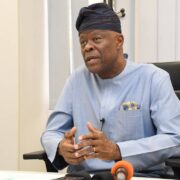

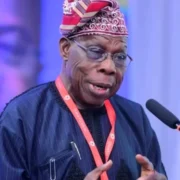
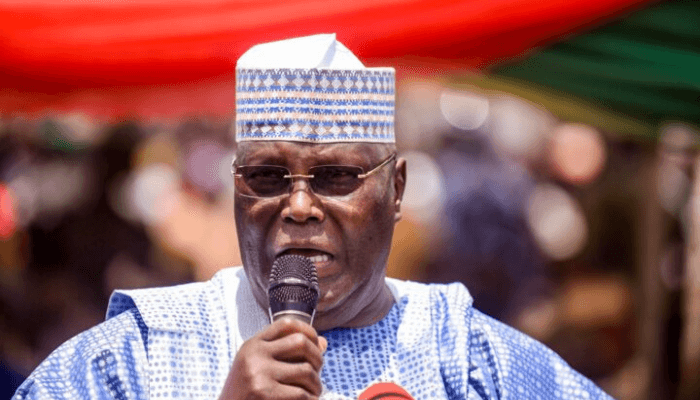
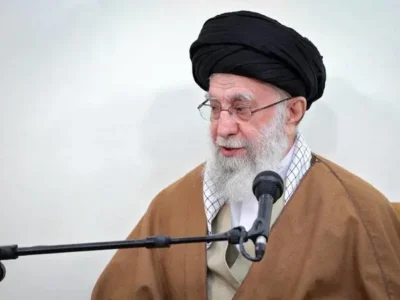
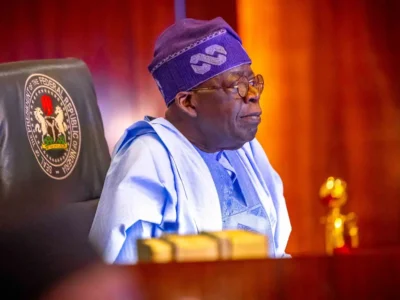
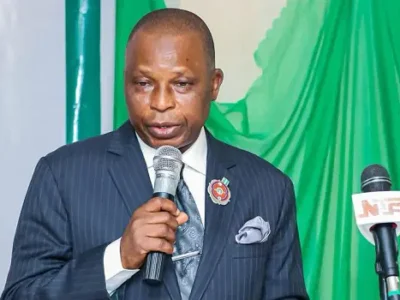










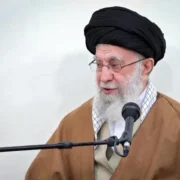
Comments